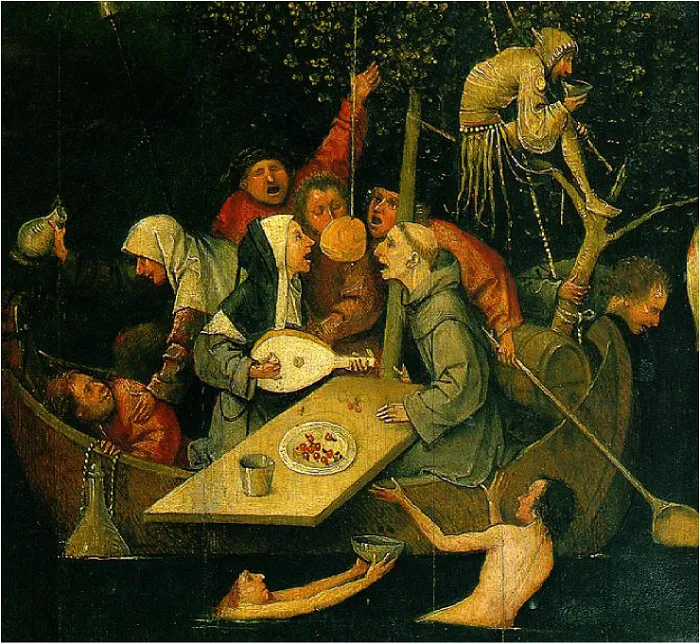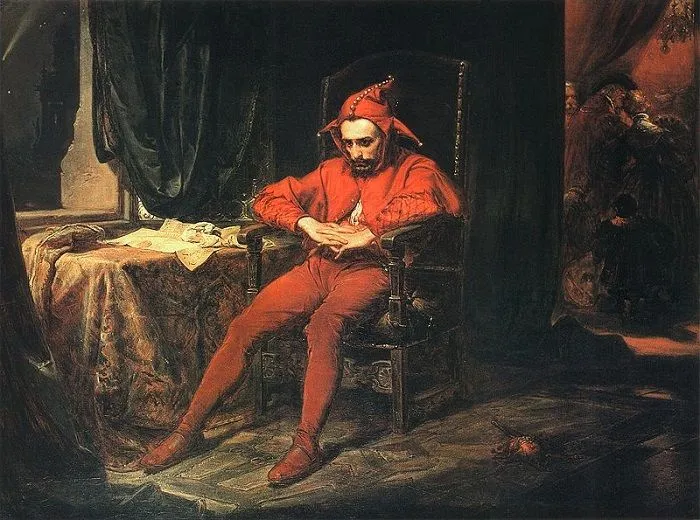In 1999 two Cornell University researchers David Dunning and Justin Kruger published a book describing a cognitive distortion known later as Dunning-Kruger's effect. It is manifested in two directions: unskilled tend to overestimate their abilities, and highly qualified - to assess their abilities lower than they really are.

"Ship of fools", Hieronymus Bosch
The study was inspired by one man, who robbed two banks with a lemon juice-covered face. He was sure that once the lemon juice could be used as an invisible ink, then his face would not be visible from the cameras. Psychologists Dunning and Krueger have decided to take a closer look at that story. They were intrigued by his full confidence, since he was clearly not competent.
Dunning explains that what is curious in many cases, incompetence does not make people disoriented, confused or cautious. Instead, incompetents are often blessed with inappropriate self-confidence caused by something they perceive as knowledge.
And another interesting side of the effect. An ignorant mind is not a completely empty vessel, but is filled with a mess of inappropriate or misleading life experience, theories, facts, intuitions, strategies, algorithms, heuristics, metaphors, and premonitions, but unfortunately it seems useful and accurate knowledge .

When we try to give meaning to the world, we work with our existing knowledge and paradigms, formulate ideas, and then systematically seek information that confirms these ideas. We reject the contradictory information as exceptions, and thus sifting our experience, after all we create a fake knowledge.
The effect of Dunning-Krueger explains our propensity to appreciate this false knowledge. And the lower our competence, the more stubborn and self-confident we defend our non-scientific or unproven beliefs.
There are several possible causes of the effect. One of them is that it is easier for us to notice the ignorance of others than our own, and that is why we create the illusion that we are above the middle level, while the truth may be quite different.
You are probably a specialist in some field. Recall how in the process of learning and gaining experience at some point you have realized how much still you have and how little you know and how your self-esteem increases in the process of learning and working.
Think about how little others know about your work and not only that they know nothing but have no idea how little they know and how much specialized knowledge there even exist. Do you now realize that you are ignorant, like others, in any other area of knowledge in which you are not an expert. The Dunning-Krueger effect does not apply to others - it applies to everyone - we are all in different places on the same curve in terms of different areas of knowledge. You may be an expert in one area competent in another but probably in the bottom in many others.
That is why we have to humble ourselves, to doubt our personal knowledge and to respect foreign competence. Part of skeptical philosophy and critical thinking is the recognition that we all suffer more or less from cognitive distortions. We must learn to recognize them and make conscious efforts against them, realizing that this is an endless process.
